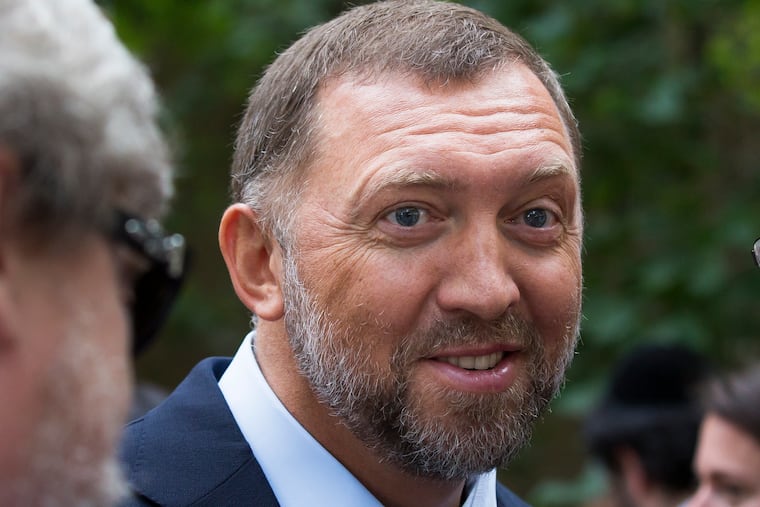U.S. sanctions Russians for election meddling, nerve agent use
The U.S. Treasury Department sanctions 15 Russians over hacking, interference in U.S. elections and a nerve agent attack in England.

WASHINGTON (AP) — The Treasury Department imposed new sanctions on Wednesday against 15 Russians over hacking, interference in U.S. elections, and a nerve agent attack in England.
In a separate action, the agency also announced plans to lift sanctions on the aluminum manufacturing giant Rusal. It comes after the department approved a plan that severed Russian oligarch Oleg Deripaska's control of the company.
The sanctions include actions against nine Russian intelligence officers who were indicted over the summer and are accused of hacking into Hillary Clinton's presidential campaign and the Democratic Party and releasing tens of thousands of private communications. The case against them was brought by special counsel Robert Mueller, whose office is investigating Russian interference in the 2016 election.
The Treasury Department said Russia's "continued disregard for international norms" necessitated the sanctions.
"The United States will continue to work with international allies and partners to take collective action to deter and defend against sustained malign activity by Russia, its proxies, and intelligence agencies," Treasury Secretary Steven Mnuchin said in a statement.
Sanctions were also levied against Alexander Petrov and Ruslan Boshirov, who have been charged by British officials with the botched assassination attempt on former Russian spy Sergei Skripal. Russian President Vladimir Putin has dismissed any insinuation his government was involved in the attack and has said Russia had no reason to attack Skripal.
The sanctions were also imposed on Elena Alekseevna Khusyaynova, who was charged by the Justice Department in October with running a Russian troll farm that prosecutors say was aimed at sowing division between Americans and interfering in the 2018 midterm elections.
The sanctions would mean that any assets the targets have in the United States could be frozen, and U.S. companies and banks are generally prohibited from doing business with them.
The Treasury Department said it notified Congress about the move to terminate sanctions against Rusal, which would take effect in 30 days, unless Congress acts to block it. Deripaska will remain blacklisted as part of an array of measures announced in early April that targeted tycoons close to the Kremlin, officials said. In spelling out the penalties, the department said Deripaska had been accused of illegal wiretaps, extortion, racketeering, money laundering, and even death threats against business rivals.
Treasury officials said sanctions against EN+ Group, the holding company that owns nearly 50 percent of Rusal, and Russian power company JSC EuroSibEnergo, also will be lifted.
"Treasury sanctioned these companies because of their ownership and control by sanctioned Russian oligarch Oleg Deripaska, not for the conduct of the companies themselves," Mnuchin said. "These companies have committed to significantly diminish Deripaska's ownership and sever his control."
The announcement follows a lobbying campaign paid for by the chairman of EN+'s board, Gregory Barker, a conservative member of Britain's House of Lords, to persuade the Trump administration to lift the sanctions against the companies.
Barker, a former British energy minister, hired the U.S. firm Mercury LLC in May to support his efforts to negotiate Deripaska’s exit from the EN+ board and “the reduction of his ownership interest in the company.”